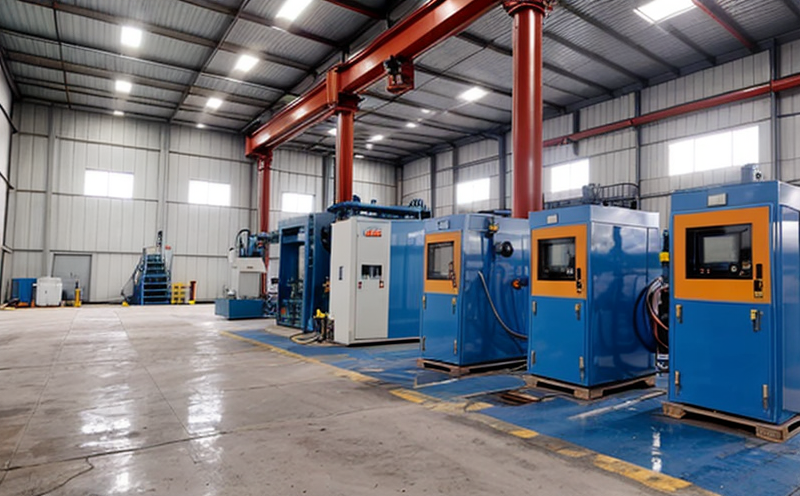EN 1097 Density and Water Absorption of Mineral Aggregates Testing
The EN 1097 standard is a European harmonized standard that provides the method for determining the apparent density, bulk density, and water absorption of mineral aggregates. This test is crucial in the mining sector as it helps ensure the quality and reliability of industrial minerals used in various applications.
Density testing is essential because it directly impacts the performance and durability of structures made from these materials. For instance, in the construction industry, accurate density measurements help in optimizing material usage and ensuring structural integrity. Water absorption tests are equally important as they provide insights into how much water a mineral aggregate can absorb when exposed to moisture conditions.
The standard specifies precise methods for preparing samples, conducting tests, and interpreting results. Sample preparation involves sieving the aggregates through appropriate sieves to obtain particles within specific size ranges before drying them in an oven at 105°C ± 3°C until a constant mass is achieved. The bulk density of aggregates can be determined by measuring their volume using various techniques depending on particle shape and size.
The water absorption test requires immersing the sample in distilled water for a specified period (usually 24 hours) under controlled conditions, then removing it, drying it at specific temperatures, and weighing again. The percentage increase in mass indicates the amount of absorbed water relative to its original mass.
Accuracy in these measurements is paramount as they influence decisions regarding material selection, cost estimation, and project timelines. For quality managers and compliance officers, understanding EN 1097 ensures adherence to industry standards which enhances trustworthiness among clients and stakeholders.
In the context of R&D engineers involved with new product development or improvements in existing processes, this test plays a significant role by providing data necessary for optimizing formulations. Procurement teams benefit from knowing that suppliers meet such stringent specifications ensuring consistent quality across different batches and deliveries.
Why Choose This Test
The EN 1097 density and water absorption testing is indispensable for several reasons, particularly in the mining sector where industrial minerals play a vital role. Firstly, it offers reliable data that supports decision-making processes related to material selection and optimization.
Secondly, compliance with international standards like EN 1097 builds credibility among clients and partners, fostering long-term relationships based on mutual trust. Thirdly, the test ensures consistent quality across different production batches or supplier deliveries, reducing variability in performance metrics.
Moreover, it aids in meeting environmental regulations by providing accurate information about resource efficiency and sustainability practices. By ensuring that industrial minerals meet stringent density and water absorption requirements, companies can minimize waste generation during processing stages.
The precision of EN 1097 tests also enhances safety standards within mining operations by identifying weak points in materials that might lead to failures under stress conditions. This predictive capability allows proactive measures against potential hazards before they cause significant damage or accidents.
Quality and Reliability Assurance
Ensuring quality and reliability is at the heart of any successful mining enterprise, especially when dealing with industrial minerals. The EN 1097 test serves as a critical tool in achieving these objectives by providing accurate measurements that form the basis for informed decisions.
Quality assurance through this testing process involves rigorous adherence to prescribed procedures outlined in the standard. This includes precise sample preparation, controlled environmental conditions during measurement, and meticulous recording of results. Compliance with EN 1097 ensures consistency not only within a single batch but also across multiple batches produced over extended periods.
Reliability assurance comes into play by validating that the tested samples represent real-world scenarios accurately. For example, knowing how much water an aggregate can absorb helps predict its behavior in various environmental conditions encountered during extraction and transport processes. Such insights contribute significantly towards maintaining operational efficiency throughout the supply chain.
Use Cases and Application Examples
| Application | Description |
|---|---|
| Construction Projects | Determining the optimal mix design for concrete mixes using mineral aggregates ensures durability and strength. |
| Road Construction | Evaluating the suitability of aggregate materials for road base layers based on density and water absorption properties. |
| Structural Engineering | Selecting appropriate aggregates for reinforced concrete structures considering their load-bearing capacity requirements. |
| Railway Infrastructure | Assessing ballast suitability by measuring its density and water absorption to ensure proper drainage and stability. |
| Mining Operations | Monitoring the quality of crushed stone used in mine support structures, reducing maintenance costs over time. |
| Sand and Gravel Extraction | Evaluating the purity and consistency of sand and gravel for use in various industrial applications like glass manufacturing. |





